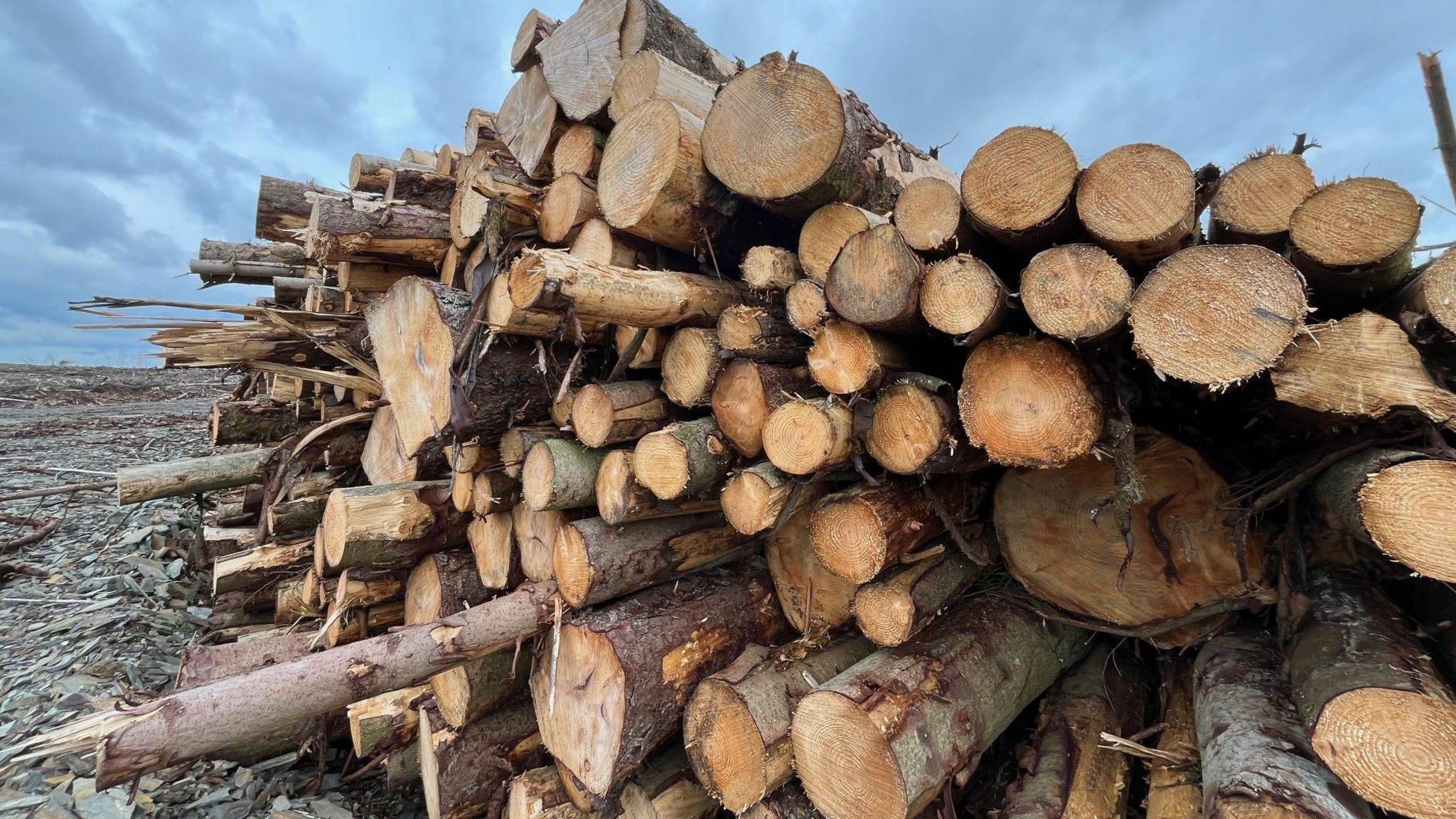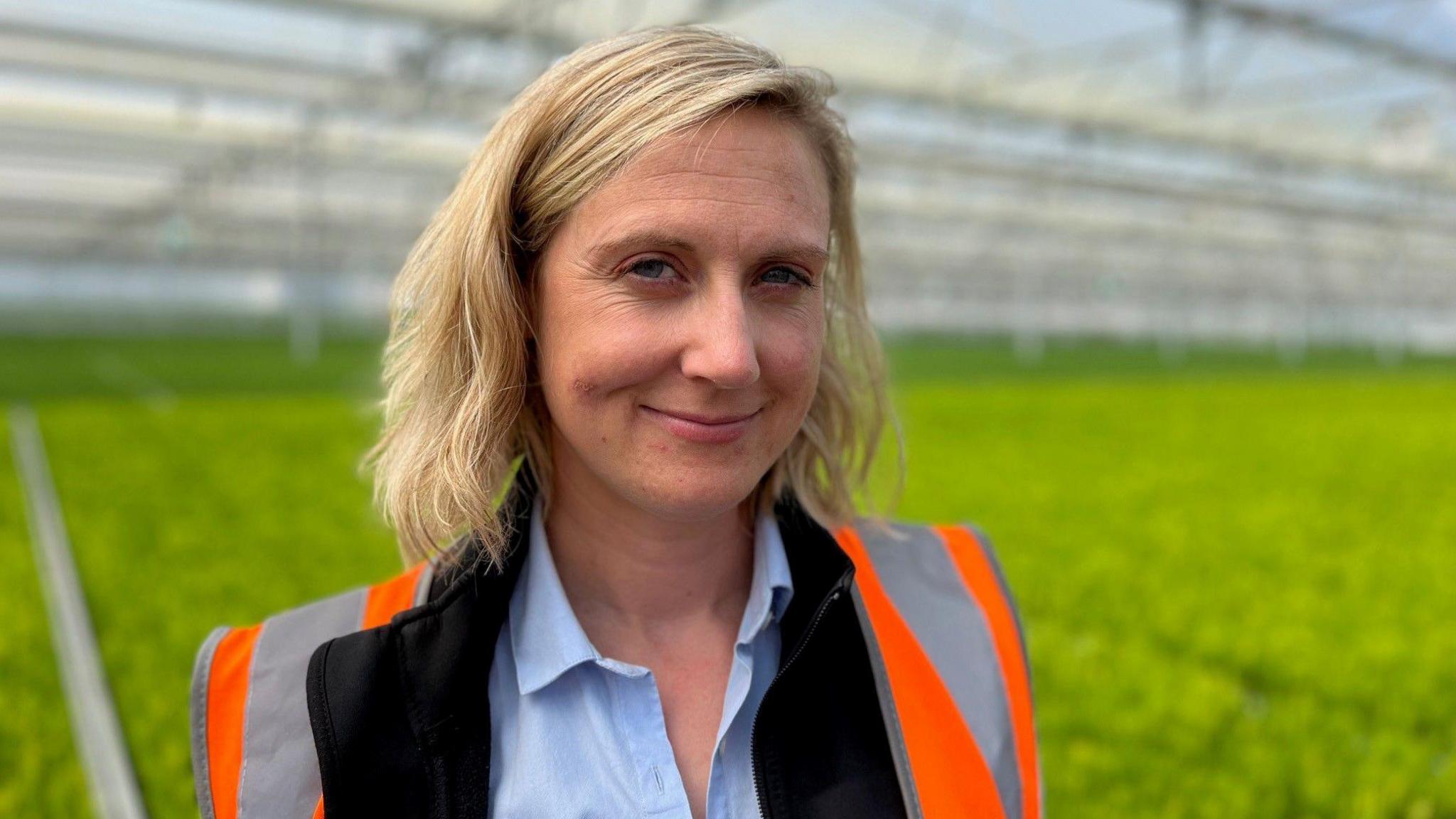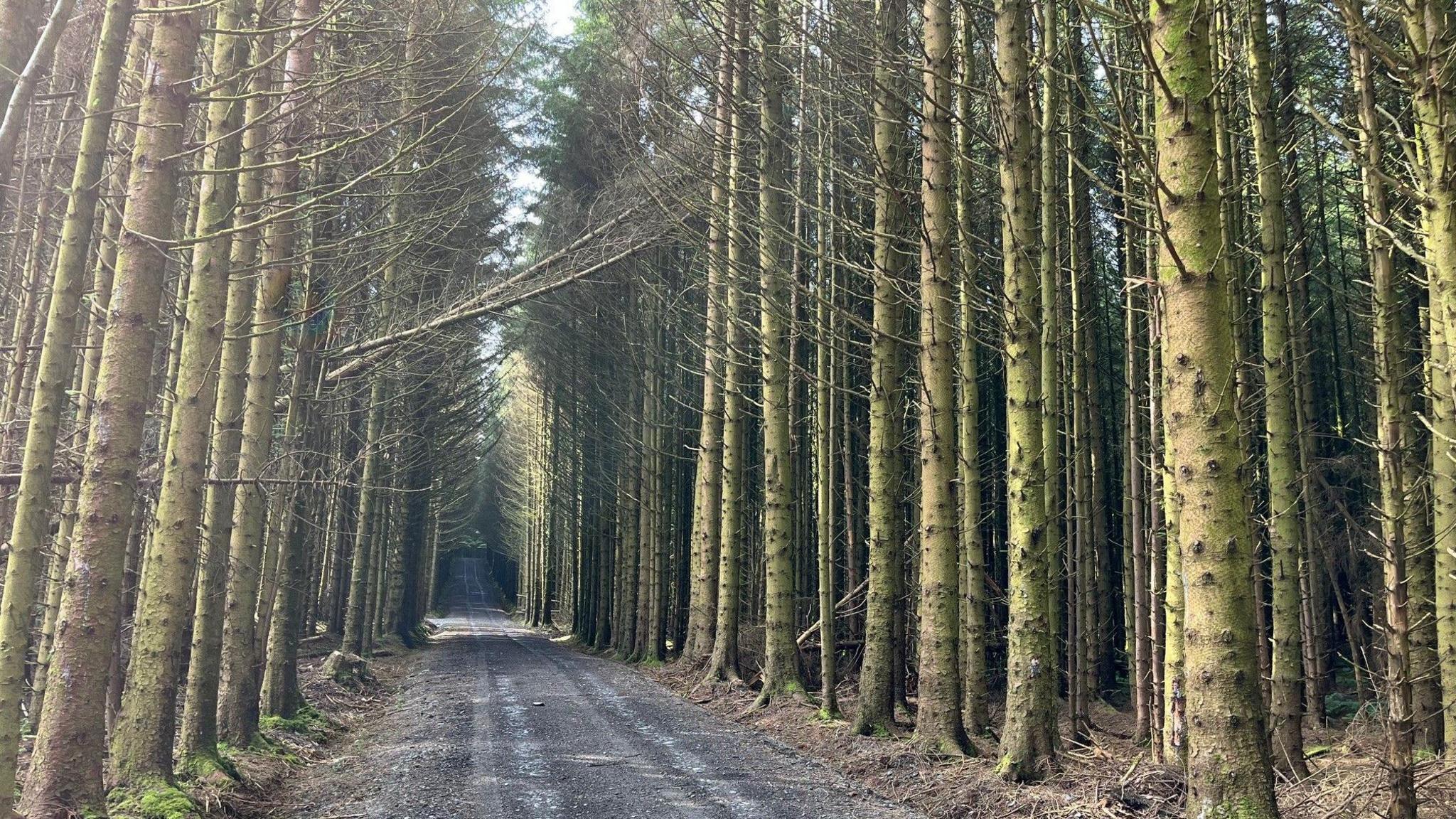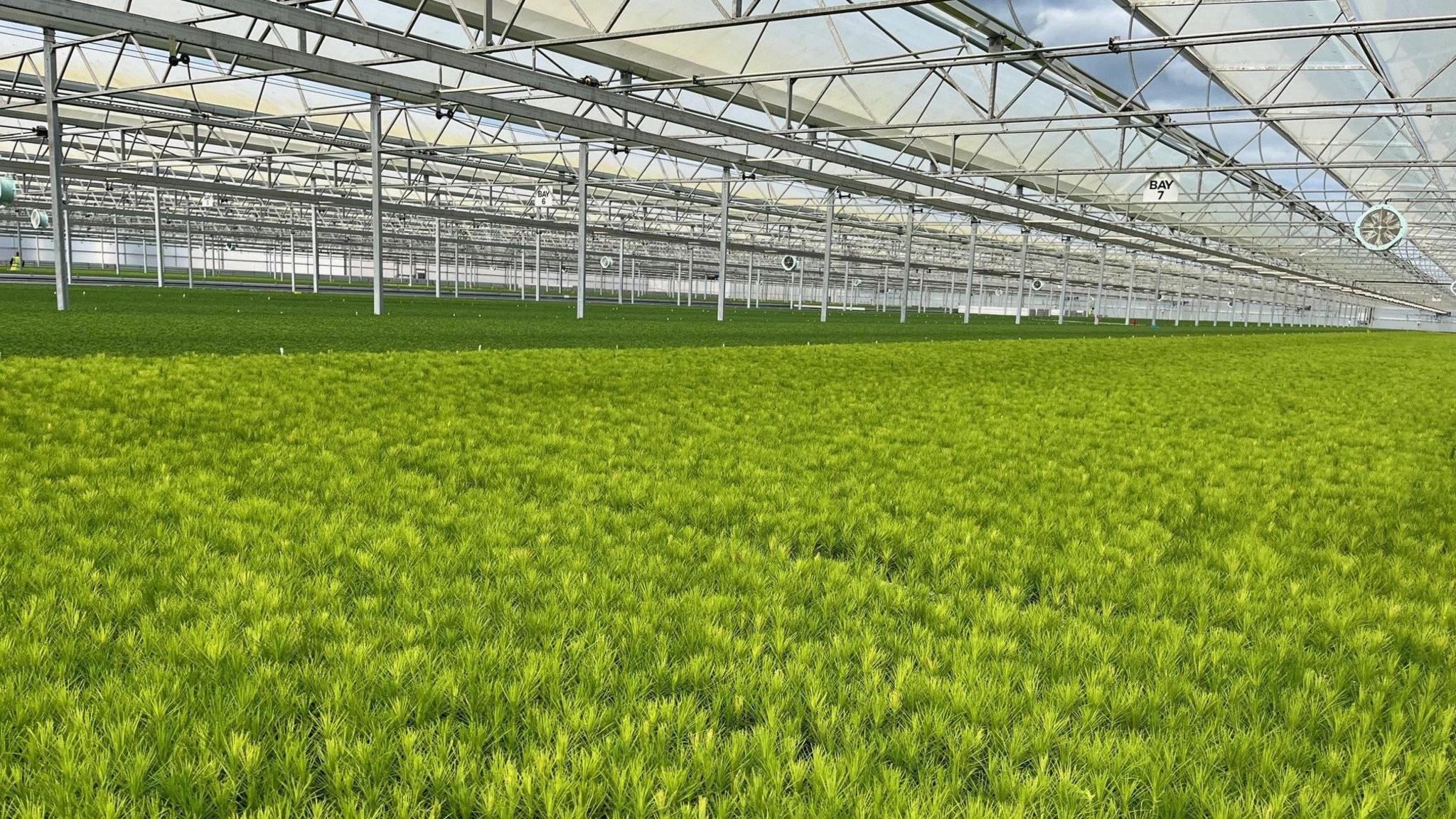Wales plants just 12% of woodland target

Demand for timber in construction is expected to increase
- Published
A “dismal” lack of tree planting in Wales is failing the country’s economic and environmental future, forestry experts have said.
Figures show 640 hectares of new woodland was created last year – just over 12% of the Welsh government’s target of 5,000 hectares annually.
The Confederation of Forest Industries (Confor) said that "Wales is going backwards" and its reliance on imported timber made it “very vulnerable".
It said the rapid planting of new forests was “absolutely crucial” for the country’s environmental targets.
The Welsh government said it was working with a range of stakeholders to produce a timber industrial strategy to support and develop the industry.
Farming leaders boycott tree planting scheme
- Published23 July 2023
Minister tells families to plant more trees
- Published19 August 2021
Protest-hit farm subsidy plan pushed back a year
- Published14 May 2024
Statistics from Forest Research last month showed 640 hectares of new woodland was created in 2023-2024 in Wales, down from nearly 1,200 hectares the previous year.
Elaine Harrison from Confor said: “These are dismal figures, especially when the UK-wide picture is much brighter.
“Both Scotland and England planted far more woodland than the previous year and the overall UK total was up significantly.
“Yet Wales is going backwards - and this failure is failing our rural economy, where we could be creating jobs and growth, and our environment, as we need to plant far more trees to address the climate emergency.”

Elaine Harrison says Wales is "going backwards" with tree planting
Ms Harrison said unlike Scotland and England, Wales has no active system to identify and assess the suitability of marginal degraded upland habitats which could potentially be restored for tree-planting.
In Wales, she said it has become “easier to plant on improved agricultural land, which is something we don’t want to happen," and she called for a "radical review" of the Welsh government's approach.
She added that conservationists, farmers and forestries were “all competing over the land mass of Wales, and what we need to do is work out a way of working together”.

Iwan Lloyd-Williams says more trees would boost the economy and help the environment
In order to meet Wales’ target of 43,000 hectares of new woodland by 2030, and 180,000 hectares by 2050, 5,000 new hectares need to be planted every year.
At one supplier alone, Maelor Forest Nurseries in Wrexham, 35 million trees are grown every year - yet fewer than 10% of those are planted in Wales.
Iwan Lloyd-Williams, an independent forestry consultant, said even fast-growing conifers like Sitka Spruce take 30-40 years to mature, so immediate action was needed.
“If we don’t do it now we’re going to miss the boat,” he said.
He added the Welsh government’s desire to hit net-zero by 2050 was a “great ambition,” but the industry was fighting “bureaucracy, the red tape and the length of time of the process to get through the planning stage before a tree is planted”.
Mr Lloyd-Williams said the demand for timber for construction was likely to increase, with the growing importance of sustainable products.
“We need housing. With the population growing, where’s the timber going to come from in the future?
“We should be building Welsh homes from Welsh timber.”

Sitka Spruce can be ready to harvest in 30-40 years
In May, a major overhaul of farming subsidies in Wales was delayed by another year until 2026, following widespread protests.
Under the Sustainable Farming Scheme (SFS) – the Welsh government’s plan for funding the farming industry after Brexit – farmers would have had to commit to having trees on 10% of their land and earmarking 10% as wildlife habitat. But many farmers were furious.
Iwan Parry, regional manager for Tilhill Forestry - the UK's largest forest management and timber harvesting company - believes trying to force farmers to devote 10% of productive land for trees was a mistake.
“I’m not sure that was the right way to go about it,” he said.
Forestry and farming industries needed to work together to reach a consensus, he said, adding: “There are opportunities on farms, there’s no doubt - but not on all farms.
“It suits some farmers to plant trees and it doesn’t suit other farmers to plant trees.
“We need to look back at this and see a way forward.
“We have to produce food, but we also have to produce timber for construction and homes and houses and everything else.”

Maelor Forest Nurseries grow 35 million trees a year, but a small percentage end up in Wales
The Welsh government said: “We are pleased to see Confor bringing attention to the importance of growing more timber in Wales and its role in building homes in Wales.
“We are working with a range of stakeholders, including Confor, to produce a Timber Industrial Strategy to help support and develop the industry effectively.
“No decisions on the final Sustainable Farming Scheme have been made but we are working in partnership with stakeholders, through the Ministerial Roundtable and the Carbon Sequestration Evidence Review Panel, to review these scheme aspects.”